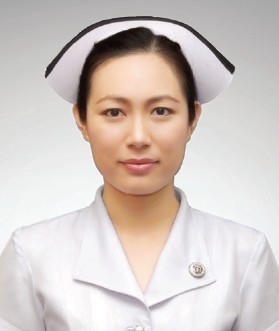Effects of Pressure Sore Prevention Program on Knowledge and Self-Efficacy of Family Caregivers in Decreasing Pressure Sore Risk of Persons with Cerebrovascular Disease
Main Article Content
Abstract
OBJECTIVES: This quasi-experimental research design was aimed to determine effects of pressure sore (PS) prevention program on knowledge and self-efficacy of family caregivers in decreasing PS risk of persons with cerebrovascular disease (CVD).
MATERIAL AND METHODS: Study participants were family caregivers of persons with CVD and these were randomly selected and placed into two groups: an experimental group with 27 participants receiving the PS prevention program for 8 weeks and a control group with 26 participants receiving routine nursing care at home. Data were collected using demographics questionnaire, CVD knowledge, self-efficacy of PS prevention, and Braden scale for PU risk assessment. Data were analyzed using descriptive statistics, Chi-square test, paired t-test, Wilcoxon signed ranks test, ANCOVA and Mann Whitney U test.
RESULTS: After participating in the program, family caregivers in the experimental group had a significantly mean score of CVD knowledge and self-efficacy of PS program higher than before receiving the program (p < 0.001) and the control group (p < 0.001, p < 0.05, respectively). Participants in the experimental group had a significantly mean score of PS risk higher than before receiving the program (p < 0.001). However, there was no significant difference between the groups.
CONCLUSION: The PS prevention program should be applied to family caregivers in order to reduce PS risk of persons with CVD
Article Details
This is an open access article distributed under the terms of the Creative Commons Attribution Licence, which permits unrestricted use, distribution, and reproduction in any medium, provided the original work is properly cited.
References
2. Bureau of Non-Communicable Disease, Ministry of PublicHealth. Annual Report, 2017. (Accessed August 26, 2018, athttp://www.thaincd.com/2016/media-detail.php?id=12986&tid=30&gid=1-015-008). (In Thai)
3. Maharaj Nakhon Si Thammarat Hospital. Annual StatisticalReport, 2015. (Accessed February 14, 2018, at http://www.mnst.go.th/doc3_show.php). (In Thai)
4. Sakunhongsopon S, Anantachok S, Honsakun K. Selectedfactors, activities of daily living and complications in strokesurvivors at home. J Nurs Educ 2011;4:36-52.
5. Pichaipong S. Situational analysis of pressure sores preventionamong postoperative elderly patients with traumatic braininjury, male surgical ward, Lamphun Hospital. Master ofNursing Science in Gerontological Nursing, Faculty ofGraduate Studies, Chiang Mai University, 2014. (In Thai)
6. Dealey C, Posnett J, Walker A. The cost of pressure ulcer inulcer in United Kingdom. J Wound Care 2012;21(6):261-6.
7. Tamnanthong N, Kowsuwon W. The cost of treating pressureulcers. Srinagarind Med J 1997;12:74-82. (In Thai)
8. Laiwarin W, Liankruea K. Development of care model forcerebrovascular disease patient in Phaholpolpayuhasenahospital. J Nurs Divis 2016;43:92-113. (In Thai)
9. Timtong P, Keeratiyutwong P, Sulasurn R. Factors related todependent care ability of caregivers in stroke patients. J NursBurapha Univer 2011;16:9-21. (In Thai)
10. Kanphuak B, Kumpolsiri T, Lasuka D. Effectiveness ofclinical practice guidelines implementation for pressure soreprevention in elderly with cerebrovascular disease at femalemedical Unit 1 Buddhachinaraj Hospital PhitsanulokeProvince. Nurs J 2010;37:155-69. (In Thai)
11. Eljedi A, El-Daharja T, Dukhan N. Effect of an educationalprogram on a family caregiver’s prevention and managementof pressure ulcers in bedridden patients after discharge fromhospitals in Palestine. Int J Med Sci Public Health 2015;4:600-6.
12. Tapanon P, Nimit-Arnun N, Amnajsutsue K, et al. The effectsof a continuing care program for pressure sore preventionamong high-risk patients. Christian University Thailand J2008; 1: 63-72. (In Thai)
13. Banlue J, Santayakorn C, Prachanban P, et al. Effectivenessof training program for care givers of cerebrovascular incommunity. J Nurs Health Sci 2010;1:101-9. (In Thai)
14. Chiang KF, Wang HH. Nurses’ experiences of using a smartmobile device application to assist home care for patients withchronic disease: A qualitative study. J Clin Nurs 2016;25:2008-17.
15. Koh GC, Yen SC, Tay A, et al. Singapore tele-technologyaided rehabilitation in stroke (STARS) trial: Protocol of arandomized clinical trial on tele-rehabilitation for strokepatients. BMC Neurology 2015;15(161):1-14.
16. Bandura A. Self-efficacy: The exercise of control. New York:W.H. Freeman and Company; 1997.
17. Erdfelder E, Faul F, Buchner A. G POWER: A general poweranalysis program. Behav Res Meth Instrum Comput1996;28(1):1-11.
18. Thanamai N. Effect of holistic approach teaching program oncaregivers’ caring ability of stroke patients. Master of NursingScience in Community Nurse Practitioner, Faculty of GraduateStudies, Naresuan University, 2007. (In Thai)
19. Hongsoi S, Kunsongkeit W, Masingboon K. Results ofprogram for promoting caregiver’s ability in continuing careon caregiver’s ability, functional ability, and complications inischemic stroke patients. J Community Develop Life Quali2013;1:77-89. (In Thai)
20. Prasat Neurological Institute. Prevention and care for patientswith pressure ulcers, 2014. (Accessed January 5, 2016, atwww.youtube.com/watch?v=NBlLzmBfR8Q&t=21s).(In Thai)
21. Hirankro B, Angsurodkun S, Kittipenkun P, et al. A Guide torehabilitation of stroke patients for family caregivers at home.Bangkok: Thai Health Promotion Foundation; 2011. (In Thai)
22. Khawanmuang R. Pressure ulcer risk assessment in patientswith limited activity. Master of Nursing Science in AdultNursing, Faculty of Graduate Studies, Mahidol University,2001. (In Thai)
23. Chanchai A, Chuyingsakultip N, Gadudom P, et al. Effects ofstroke caring program on knowledge, skills, activities ofdaily living, complications, and program satisfaction amongacute ischemic stroke patients/caregivers at Rayong Hospital.J Phrapokklao Nurs Colle 2014;1:78-98. (In Thai)
24. Srijumnong N, Rawiworakul T, Lagampan S. The effect of aself-efficacy promotion program for family caregivers ofpersons with stroke at home. J Boromarajonani College Nurs2010;1:28-30. (In Thai)


